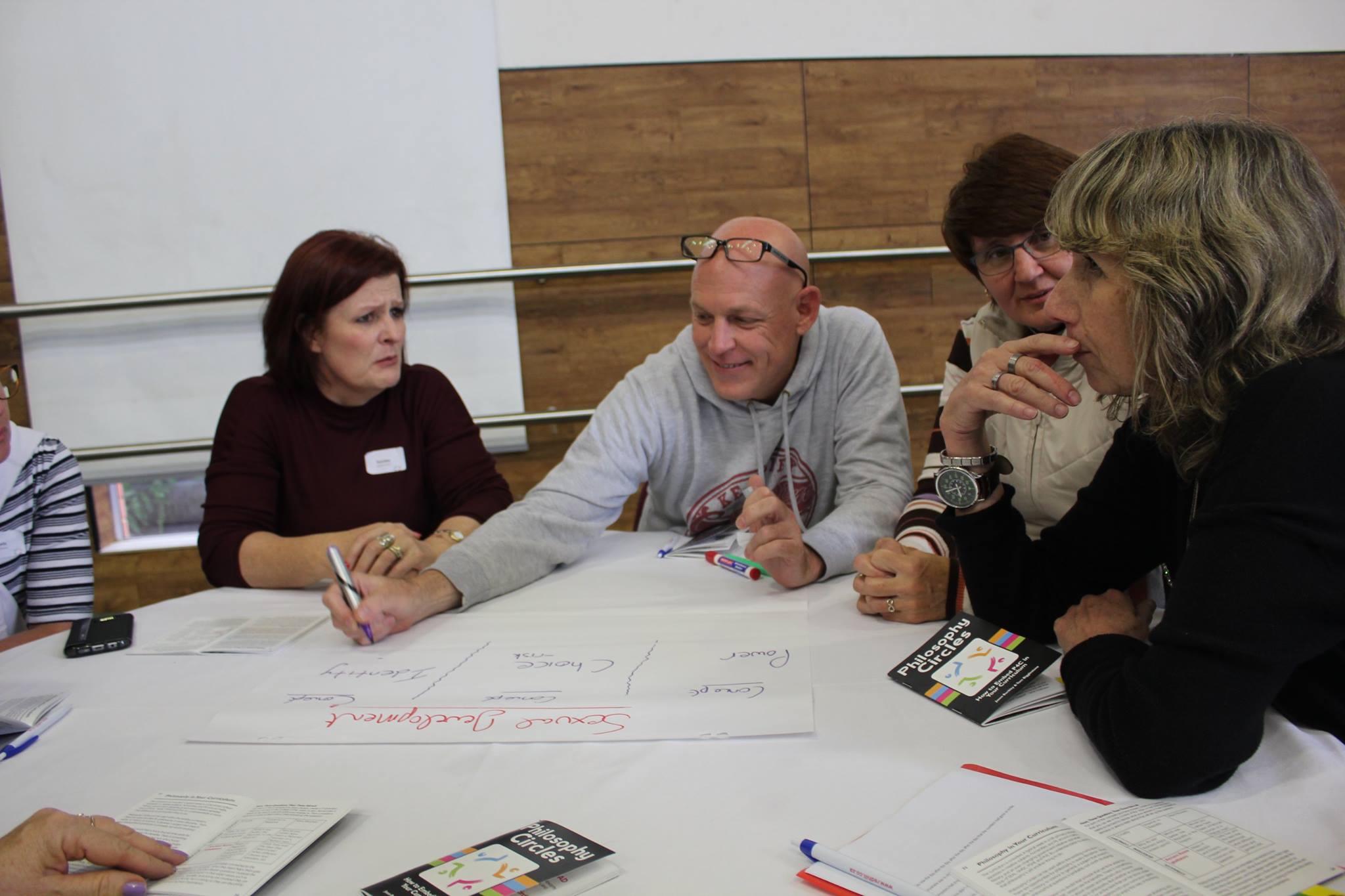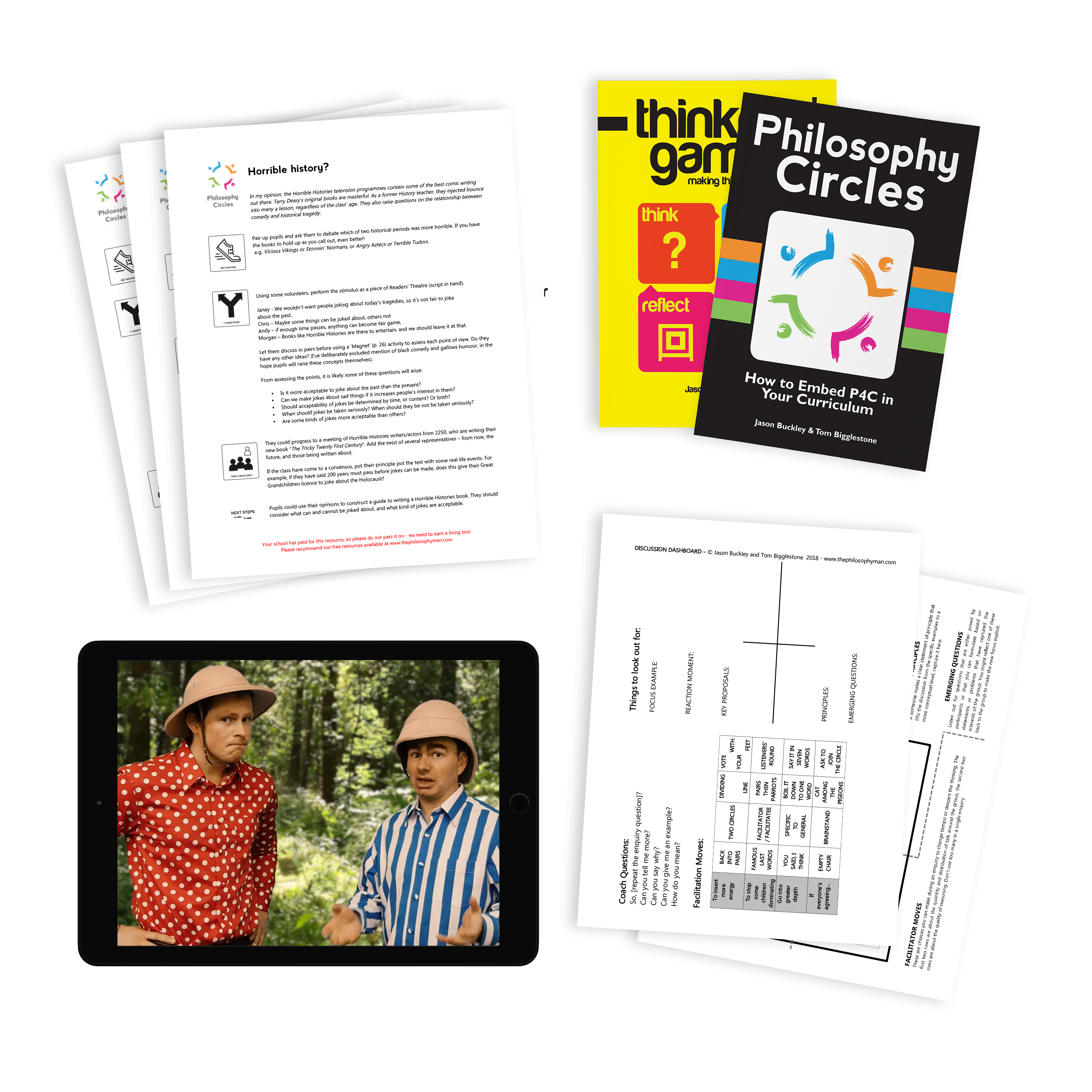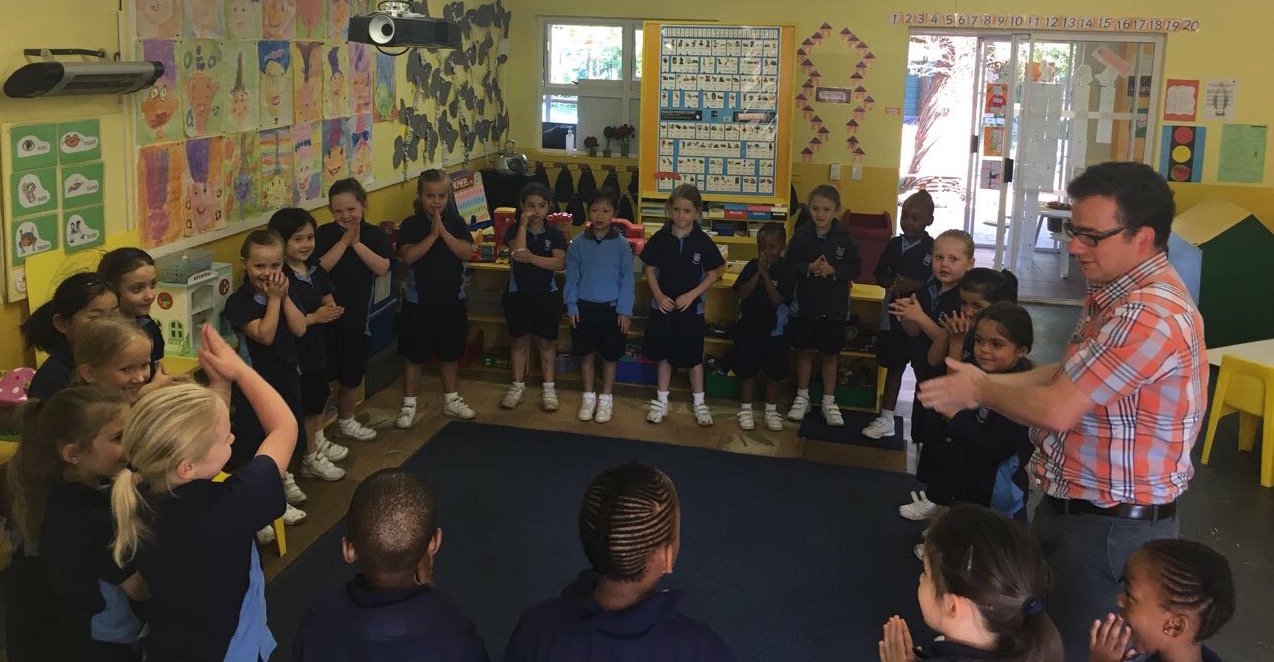Worried you're too far away for our training?

You're not! We've worked with the British School Jakarta, The International School at Ho Chi Minh City, and UWC Singapore, as well as several schools at Open Courses organised by local authorities and governments in South Africa, Australia and New Zealand.
We are always looking for new opportunities to work internationally, so read on for details of how we can work with you...
In-school workshops and CPD
Now there is an easier way to make the most of oracy and P4C in your school, without having to change your timetable. Why not begin our training pathway - designed to embed our strategies into your existing curriculum and across your school.
The traditional pathway begins with an INSET, followed by teachers observing us working with their classes, and progresses to us observing them. However, every package is tailored for schools and there's something for every budget. And you don't have to sign up for everything at once!
Arrange a call with Tom
Set up a call with Tom to discuss how we might be able to help you.
How do we work with International Schools?
Everything is tailored to your school or trust (or area, if you're hosting an Open Course) and it's usually a combination of several of these:
Opening / Closing Meetings with P4C/oracy Champions exploring problems that have come up, curriculum opportunities, possibilities for connections between classes and year groups, their professional development needs in leading P4C / Reviewing the week, looking at aspects of resistance and open doors for further improvements, considering how to support progress.
INSET Days: Full days to explore our key principles, by experiencing classroom ready activities before looking under the bonnet, and teachers planning their own activities.
Assemblies built around a question poem, to create a buzz around philosophy for the week and to provide a few examples of principles to act as “callbacks” in the initial twilight sessions.
Twilight INSET to either introduce the core principles of our work or if INSET has been delivered already, a mixture of trouble shooting based on questions captured from staff and also looking at a variety of types of stimuli and ways to identify them.
Sandwich Sessions - Combining a briefing, pupil workshop, and debriefing: Identifying some needs for development in the workshop class; pointers for what to look for during the workshop; workshop, debrief and diagnostic of what to do next with the class. The aim is to deepen connections between philosophy and wider planning of the year group team, to show a cycle of planning, facilitation and review for a particular class, and of course to model facilitation.
Enquiry Dashboard INSET This session will mix people from different year groups, with a view to stepping back from the specifics of their class and engaging with the deeper principles and with thinking philosophically as facilitators and participants. Pairs of facilitators run enquiries on adult questions for ten or so peers, using the enquiry dashboard, with a final review session which would allow everyone to see how the diagnostic troubleshooter can be used to inform future sessions.

A typical booking:
There's no such thing as a typical booking - some last one day, some last several, but here's a taste of what we might create with you:
Initial Visit:
Day 1:
Assemblies with various year groups
Meeting with P4C Champions
Philosophy Circles Twilight for Upper School Staff
Day 2:
Upper School Sandwich Sessions (30 minute briefing, 40 minute session with children, 20 minute debrief).
Philosophy Circles Twilight for Lower School Staff
Day 3:
Lower School Sandwich Sessions
Philosophy Circles Twilight for EYFS Staff
Day 4:
EYFS Sandwich Sessions
Meeting with P4C Champions
Enquiry Dashboard Twilight Open To All Staff
Follow up Visit:
Day 5:
Observe sessions run by P4C champions
Twilight INSET on Deeper Facilitation for Lower School and EYFS Staff
Day 6:
Observe sessions run by P4C champions
Extended meeting with P4C champions
Twilight INSET on Deeper Facilitation for Upper School Staff

Ready-to-use resources
Lots of ideas from INSET sound great on the day but never see the light of day. New initiatives often get buried under the hectic pace of day to day teaching.
To avoid that...
- Philosophy Circles and Thinkers' Games minibooks
- Over 200 session-plans that cover practically every topic on the curriculum - so P4C can be embedded within teachers' existing lessons
- 100 Spot and Stripe videos, assessment tools, how-to guides and a wealth of other supporting materials

What’s the difference between Philosophy Circles and “traditional” P4C?
All P4C gets children thinking about challenging questions, where teachers act as facilitators rather than knowledge-givers. Traditional P4C follows a series of stages. Children see or read a stimulus, think about the ideas in it, create questions, evaluate the questions, and then choose one to talk about. In Philosophy Circles, the facilitator usually asks the first question, so the children get thinking and talking straight away. Children’s own questions and ideas still emerge and grow through discussion. Rather than strict stages, Philosophy Circles is built around three facilitation principles which run through the whole process, making it more fast-paced and versatile for use across the curriculum.


Booking and Delivery Models
For the deepest impact and so we can guide you through the whole programme, most international schools choose three or more days of P4C training, including time to observe us working with children. We charge a flat day rate of £1250+VAT, with co-payment of expenses negotiable dependent on how much work which are already doing in the area.
Please contact us on the form below for more details.
Interested in training?
Contact us today to arrange a chat - choose from any of the options below.
Feedback from our recent P4C training:
"I cannot describe the buzz and vibe from the staff, all down to you."
"You really did create a huge buzz in school, which is a difficult shout on the first day back! You covered everything we wanted out of the training and gave us mountains of material to use in class. I loved the fact you gave each phase some planning time to discuss ideas and plan sessions and then trial them out of colleagues. You have definitely given us some inspiration and I am very excited to see what happens next."
"There was a buzz during the staff meeting, which for any member of staff attending a staff meeting knows this is a rare thing! All the staff said how enthused and excited they felt to get back into their classrooms and try out the methods they had been shown."
"The questions raised interested everyone and there was a real buzz in the room. Our training was full of practical activities and games, with the just the right amount of discussion about teaching techniques interspersed. What an inspiring day!"
"It is us who would like to thank you. It was such an inspirational INSET and the staff were truly excited. The enthusiasm is palpable!"